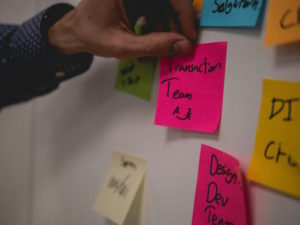Facilitation guides, tools & techniques
“Coming together is a beginning, keeping together is progress, and working together is success.” – Henry Ford

Facilitating collective change requires sensitivity to goals, context, connections, methods, and content. It demands patience, empathy, and the ability to foster trust and open dialogue. By recognising and integrating diverse knowledge systems, we can co-design regenerative solutions that are socially, environmentally, and economically sustainable—and truly equitable and inclusive.
Below, you’ll find guidance on a wide range of tools and techniques to engage people and mobilise evidence in complex, multi-stakeholder settings. In response to COVID-19 and the rise of remote collaboration, links to resources on facilitating virtual teams, events, and meetings have been added. For further tips on communicating remotely, visit the related pages on Managing virtual teams and Managing virtual meetings and events.
Facilitation for collective change: An introduction
This Learning for Sustainability post highlights facilitation as a critical tool for collaboration and collective action in complex, multi-stakeholder processes. It explores how facilitation builds trust, fosters dialogue, and integrates diverse perspectives to design equitable and sustainable solutions, particularly in long-term initiatives.
Liberating structures
Liberating structures are practical, easy-to-understand facilitation methods designed to enhance group participation, dialogue, and action. Developed by Keith McCandless and Henri Lipmanowicz, they include over 30 tested techniques that can be used independently or combined in strings to address group challenges. For an introduction see Lisa Kimballs’s Systems Thinker post – Liberating structures: A new pattern language for engagement.
Participatory action research: Guide for facilitators
Written by Robert Nurick and Marina Apgar, this guide supports facilitators conducting participatory action research (PAR). Originally developed for CGIAR’s Aquatic Agricultural Systems programme, it offers a roadmap for delivering rigorous PAR processes and fostering critical reflection. It is also relevant to other research and community development efforts using a PAR approach.
Icebreakers for teams
collaboration.ai provides free, step-by-step instructions for over 200 icebreakers. These activities can be cross-referenced by available time and type of icebreaker to suit the needs of teams and workshops.
Resources for Online Meetings, Classes, and Events
This Google Docs page was created during the COVID-19 pandemic to curate resources for virtual facilitation. Developed by the Facilitators for Pandemic Response Group and other collaborators, it offers tools and techniques for online meetings and events, making it an invaluable resource for the global facilitation community.
Group Facilitation and Problem-Solving
This guide from the University of Kansas’ Community Tool Box offers practical advice for conducting effective meetings and facilitating groups. Topics include conducting meetings, developing facilitation skills, capturing participant input, and techniques for leading group discussions.
IAF Methods Library
The International Association of Facilitators (IAF) offers a comprehensive Methods Library with detailed facilitation techniques and tools for engaging groups effectively. These resources are designed to support facilitators in addressing a wide range of challenges, from team-building to decision-making in complex settings. Note that while the library offers valuable insights, most resources require payment for access.
Make your meeting more productive with a check-in
Richard Cohen’s site provides guides for incorporating check-ins into meetings to encourage all participants to engage. It offers prompts for exploring participants’ thoughts, feelings, or work-related concerns, fostering a more inclusive and productive meeting environment.
Faciliation blogs
MGRush offers articles and tips on facilitation, alongside a curated list of resources. Voltage Control’s blog provides additional insights and techniques from a professional facilitation agency.
The Barefoot Guides
These resources, developed by social change leaders worldwide, offer creative tools, case studies, and exercises for exploring complex issues. Topics range from addressing power dynamics to fostering a learning environment, making them ideal for facilitators and communities tackling significant challenges.
Top team-building games: experts share their favourites online
Combining fun with learning is a proven way to enhance team performance, break down barriers, and unlock hidden potential. The SmartSheet team has curated nearly 100 top games, including favourites from leading team-building coaches and consultants.
Closing ideas. A few ideas from University of Maine for the end of the workshop or group session. Remember, learners tend to remember primacy (what happens first), recency (what happens last), and the unusual.
Looking to facilitate large groups
Facilitating Large Group Discussions and Activities: Make Numbers Count
Involving everyone in a large group (50 or more participants) can be challenging, but with thoughtful planning, a range of tools can be used effectively. This article by Kelly Tait explores general strategies for fostering productive interaction in large classes, including discussions, debates, learning games, role plays, and problem-solving, alongside traditional lectures.
Facilitating Large Group Meetings That Get Results Every Time
Facilitating groups of up to 100 or more participants can feel daunting, but it is achievable with the right preparation. Sylvia James and colleagues present 10 key principles for designing and facilitating large group meetings to ensure success.
Tips for facilitating large groups
Facilitating larger groups presents unique challenges for the facilitator. This post from Jeanette Long’s Workshops with Wow offers practical tips and strategies to navigate and work effectively with large groups.
On-line facilitation
Managing virtual meetings
Virtual meetings are not just for dispersed teams—they also connect broader networks that might otherwise only meet during live events like workshops and seminars. Transitioning these highly interactive settings to an online format requires process adjustments. This Learning for Sustainability (LfS) page provides resources and guidance for setting up effective virtual meetings, whether for distributed teams or staff working remotely.
The tools here can be used in different ways. They can be used in many aspects of participatory action research, they will help those interested in developing new systems perspectives, and many other forms of collaboration, participation and engagement. The Facilitating sustainable change processes post provides a good starting place for a broad introduction to facilitation. Specific guidance on facilitating virtual teams, events and meetings can be found from the companion LfS pages – Managing virtual teams and Managing virtual meetings and events.